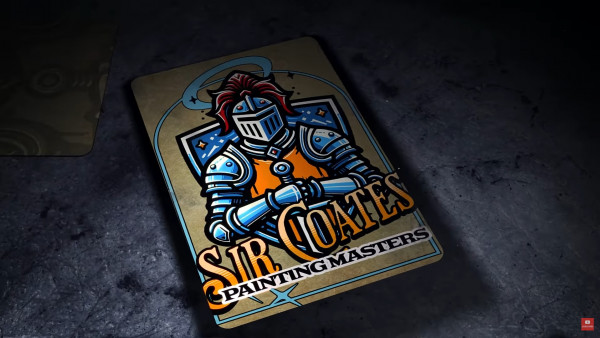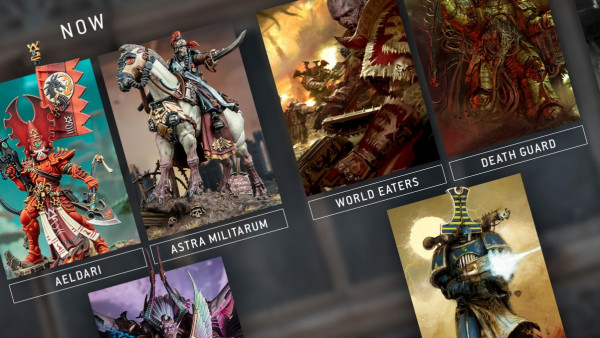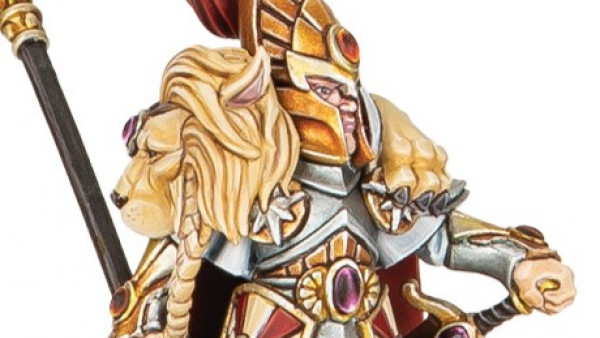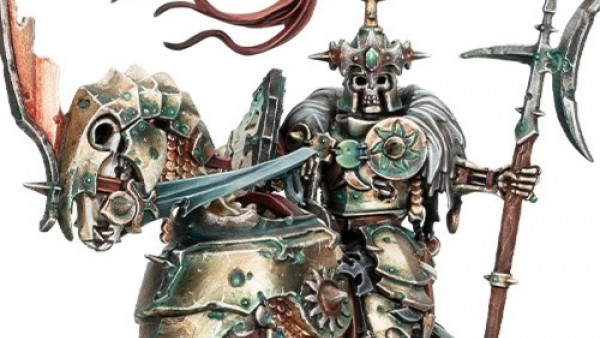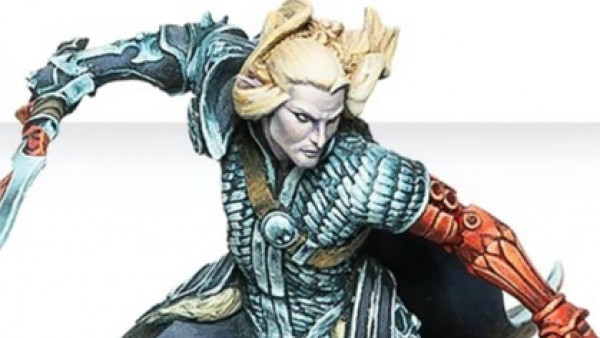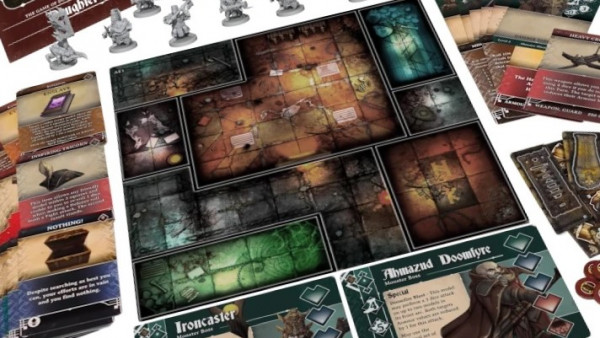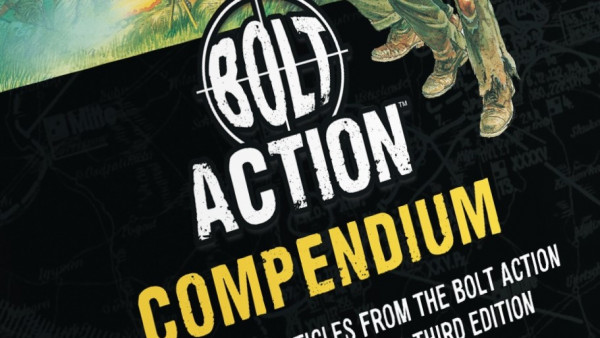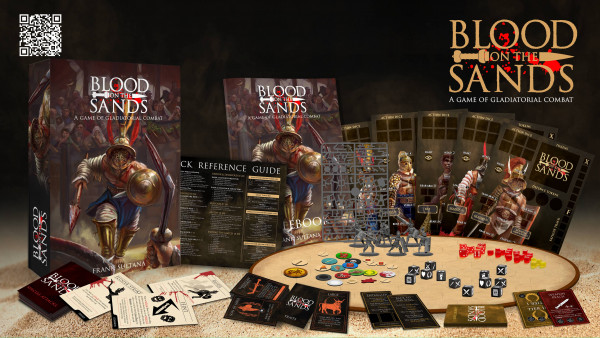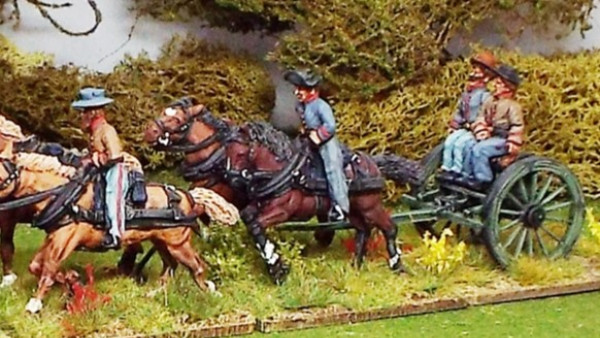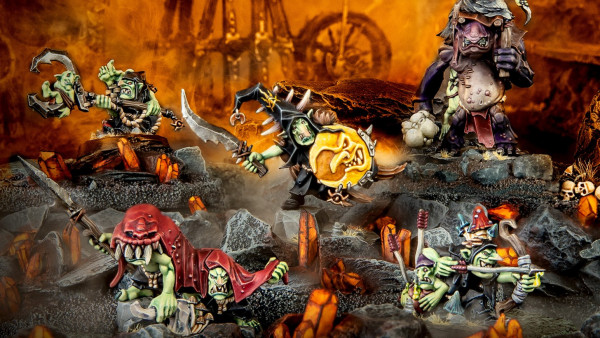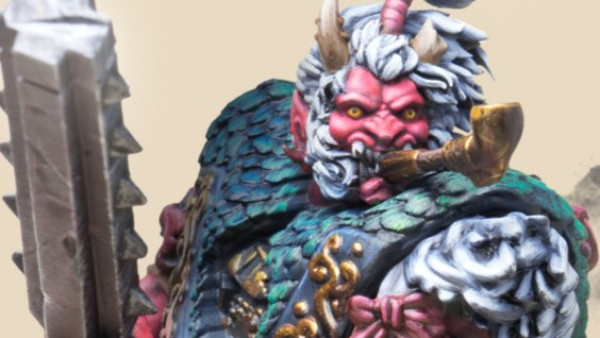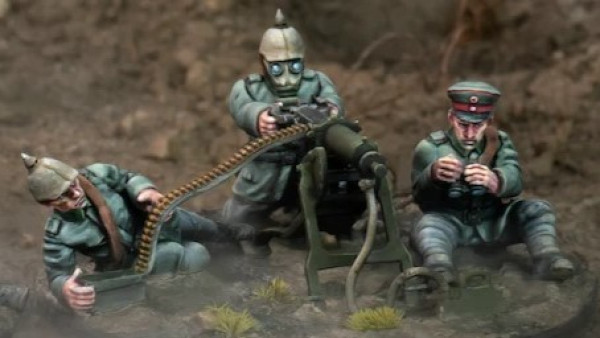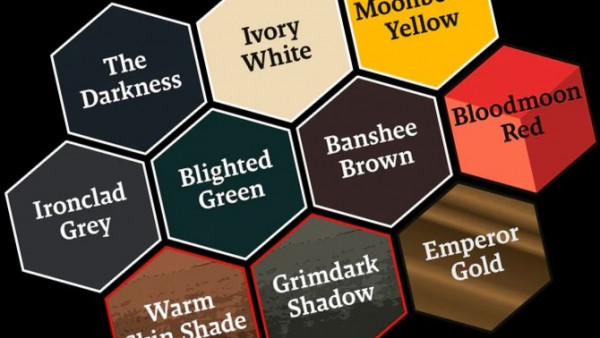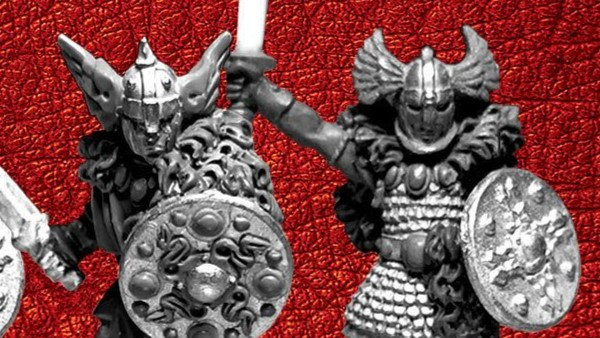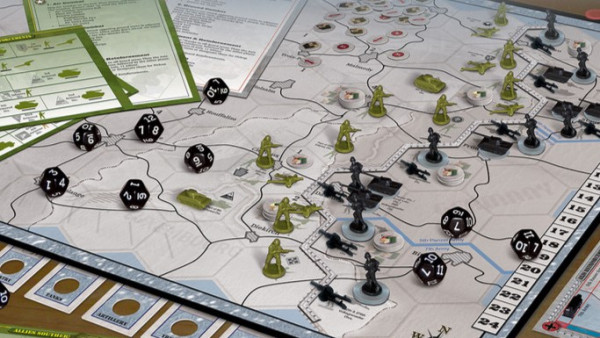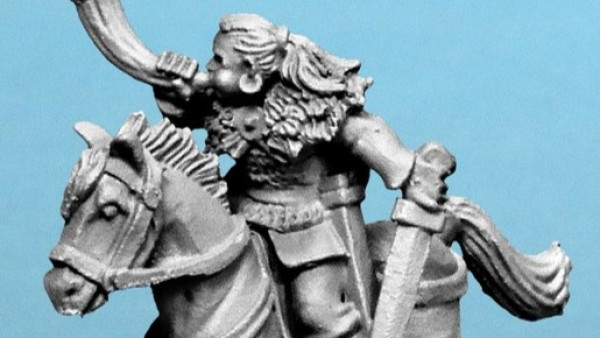Home › Forums › News, Rumours & General Discussion › D&D officially turning Forgotten Realms sights away from Euro inspired campaigns
Related Games:
This topic contains 69 replies, has 10 voices, and was last updated by ![]() greyhunter88 6 years ago.
greyhunter88 6 years ago.
-
AuthorPosts
-
January 11, 2019 at 5:51 pm #1328474
Speaking as someone who played a 2-year campaign in Ancient Egypt, desert environments are extremely harsh, unique, and unforgiving.
That being said, they cease being of any note by around 2nd or 3rd level.
We were all excited about how it would fundamentally change the game. No heavy armour, survival being a big element, tomb raiding being fundamentally against the moral good of their society.
Sadly, we were playing D&D… survival ceased mattering the second Create Food and Water and Endure Elements became available (which was super early). Not to mention Know Direction… which is 0 Level, I believe?
And the way the game scales, it was basically impossible for the players to not rob tombs, since they needed X amount of loot to be on track to survive later encounters, and in Ancient Egypt, where else are they really going to get 95% of their magical artifacts and buried treasure?
So… by around the 1/3rd mark, characters were practically prying the gold off of sarcophagi, which would have been considered hideous blasphemy in Ancient Egypt. “Dear Sekhmet… forgive me for fundamentally rejecting the entire basis of our system of belief and existence… but if I DON’T sell this regal staff for 200gp I won’t be able to get that Ring of +2 Wisdom that I need to beat the next dungeon…”It was still fun, but I’d say the generic “one-size-fits-all” nature of D&D stripped away about 90% of the setting. I’m certain some here will disagree, but the game itself did not really facilitate playing in this setting, and while I could have quadrupled my workload to push it more in that direction, it seems like p*ssing into the wind when other games are so evocative right out of the book.
The “Dungeons” part of the game made it very hard to actually follow the loot progression without robbing graves and going into tombs, and the sheer availability of low level magic robbed the natural environment of any threat.
Could I have made it so that ALL of their loot was somehow gifted by superiors and the like as rewards for accomplishing quests? Yes, but again, that’s me going well out of my way to make it work, and it would quickly get contrived.
Could I have removed spells like Endure Elements so that the desert was a threat? Yes, but then we end up in the silly position where a Druid in Ireland can protect against volcanic heats, but the Druids in Egypt, who can summon sandstorms and turn the whole party into camels, cannot protect against the weather.If there were a game set in Ancient Egypt that took its unique elements into account, I’d be all over that. As it stands, though, I’ve yet to play in any game of D&D where the setting and environment served as anything more than window dressing and class/monster skin, whether that be the heart of the Congo, Egypt, or whatever.
Maybe at its core, I just don’t realize that I don’t really like D&D ^_^
January 11, 2019 at 6:10 pm #1328500In a culture where a Fez exists there’s bound to be a wizard making a magical version that adds ‘extras’.
We’ve got all of the armour parts that make a traditional knight would wear and there are magical versions of those within any decent setting. I’m sure the parts the armour as worn by samurai breaks down in similar bits and pieces.
And there are bound to be things that are very culture/region specific.
@greyhunter88 while it would be nice to have certain mechanics that help lesser mortals in roleplaying the problem is that such things can not be done within a fantasy themepark setting like Forgotten Realms.
You can’t introduce a honour-based mechanic, unless you only limit it to characters within a specific region.
This then makes it difficult to transport such characters to other regions.IMHO this is why specialized rpg’s are in a league of their own.
If you want a proper samurai themed game then you either use something like L5R or one creates a region specific campaign setting that adds these things on top of the existing framework. Which is what WoTC/TSR has done and why Kara-Tur and others were separate from the core setting.I don’t know if 5th edition has any rules that make this a bit more viable, but it most definitely won’t have the flavour of a specialised rpg setting..
January 11, 2019 at 6:31 pm #1328516Ultimately, that’s my whole point in all of this.
By its very nature, a generic “Arabia” or “Asia” sourcebook for Forgotten Realms is not going to really add much to the game beyond a bit of fluff and some new classes or items.
A completely separate setting, like Kara-Tur, would allow them to explore these in more detail, and even integrate mechanical differences into the game itself to help encourage players to think and play differently.
Hence my thesis that these sourcebooks in discussion are likely just token nods at diversity, and are missing the opportunity to really present diversity in an interesting and interactive way.
Adding a samurai to my Pathfinder campaign gives me a 0.1% feeling of diversity. Now there’s official ‘permission’ for my Asian friends to make a character who has the same phenotypes as them, I guess?
Playing a campaign of L5R makes all of us feel like we’re really learning about and living in a completely different world, that is very clearly modeled after real world counterparts. Even the Asians in our group were learning a ton, because their Chinese and Taiwanese backgrounds are different from the mostly-Japanese inspirations that inform so much of L5R.If you want Africans to feel more included in RPGs, don’t give me a “Cheetah” totem for my Barbarian Class and write up plot hooks for a new capital called Addis Abadar. Give me a setting set based on ancient Ethiopia that fundamentally changes the magic system, the classes, the way adventures are structured, the enemies, etc etc.
That’s just my two cents.
January 11, 2019 at 6:34 pm #1328517I doubt you will see any changes to the survival skill, it’s quite high level and d&d isn’t really skill heavy. Also, it would mean having to redesign character sheets just for that source book so it’s unlikely to be changed. There might be environment rules for deserts themselves but survival in them is unlikely to require a new skill.
I think many of the most common monster types are probably already in the monstrous manual – I would be really surprised if there isn’t already rules for a giant Scorpion and Rocs.
Turbans are quite interesting because unlike hats they can be worn over a helmet. So a turban is just an accessory, enchanted turbans on the other hand can be worn by armoured and unarmoured characters alike and can probably also be combined with a helmet. Flying Carpets as a magic item could be interesting.
Expanding the Genie monster type (there are some in the monstrous manual already) would be nice. A new Pantheon of Gods and rules for playing clerics of those Gods is also an absolute must as far as I am concerned, it needs to feel like somewhere else.
January 12, 2019 at 9:42 am #1328779@greyhunter88 if you’re talking about scaling D&D scales in a terrible and highly unrealistic manner full stop. When you develop your setting you just have to factor that in. It’s monetary system and power levels just don’t tie up. You’re right, in order to continue to progress through the game the amount of money required continues to increase at an almost exponential rate. Even in Forgotten Realms I find it quite jarring the amount of wealth required to realistically survive. My group is currently level 3 and we went shopping prior to engaging with a Devil we were tracking and ended up spending something like 4000 gold on some healing potions and other sundries. Considering that most common folk deal predominantly with copper and silver, gold being a bit like £50 notes or £100 bills – most people never really see them – the fact that we just had to spend the equivalent of £200,000 on a level 3 encounter is a little exorbitant. But the real kicker is that such items are actually fairly easy to get hold of in terms of their availability which means that they must be commonly used items. For that to be the case then it also follows that there must be lots of people who have lots of gold – except that doesn’t seem to be the case as can be seen by the price of the lower tiers of food and lodgings. This is a situation that just gets worse the higher you get in level to the point where adventures start to cost in the realms of Millions of pounds equivalent in order to obtain the required equipments. And that’s before you even start to factor in the rewards you get for completing quests – they very rarely cover the expenses involved as we are usually offered between 50 and 200 gold per character which isn’t enough to buy a useful scroll or potion for our level so we are left with no option but to take whatever we can find wherever we can find it. These are off the shelf adventures too so it’s kind of written into the game. I actually think that the PCs in D&D would make a more profitable living as raiders rather than adventurers because they would be less bound by where they could steal from. I can see why they do it, it’s a way of stopping low level characters obtaining world destroying items but it can seem really silly
But all RPGs have a certain level of what is called suspension of disbelief to deal with some of the less realistic aspects of the game, this is something you just have to look past in d&d
January 12, 2019 at 10:15 am #1328799@limburger I have to disagree that setting specific games are in a league of their own. I think that the greatest RPG system out there at the moment is not d&d 5E as WotC like to claim with the games slogan, but Modiphius’ 2D20 system and it’s not setting specific. Each rulebook is tailored to a specific setting in terms of the necessary background, races and applicable abilities and equipment, but the game mechanics are the same for all settings. If you haven’t tried it I highly recommend it. I love it so much I have Infinity and Conan and hopefully I shall soon be investing in some of tile sets (which can also be used with the Conan Boardgame so double win!)
I don’t think you need a setting specific set of rules to create flavour when you have a GM who is telling you a story which should be setting the flavour for you to which you contribute your own Role-play to further enrich it. RPGs shouldn’t, IMO, rely on mechanics to introduce flavour because mechanics can be abused and will inevitably begin to influence player actions – at which point the flavour is coming from the game mechanics and not the players and all games you play will have exactly the same flavour.
As for 5E don’t get me started. We’re playing a game of it now and far from being the “Greatest Role-playing Game in the World” it’s anything but. It’s OK, it’s easy enough to play (although I think they have made comat turns too complicated)but it’s really rigid in terms things like character development and relies really heavily on predefined character archetypes, which when selected govern most of the abilities your character will ever get. If I had to make a comparison between d&d 5E and the 2D20 system it’s like the difference between McDonald’s and decent restaurant. McDonald’s is simple, convenient and pleases the masses but there’s very little complexity, artistry or nuance to it. For what it’s worth I have seen the other end of the scale when I played Trudvang last year. That’s a bit like nouveau cuisine – it looks beautiful but it’s pretentious and overly complicated.
January 12, 2019 at 6:19 pm #1329061@onlyonepinman : I do agree that the 2D20 system is pretty good at capturing the spirit of the settings it has been used in.
Although I think that the momentum system does require both DM and players to learn how to use it (I’ve seen people complain about it being too easy/powerful).
I’ve got the Star Trek rules and Conan pdf’s (and will have the books too once the physical pledge arrives).I suspect that it is that the sources they’ve chosen have been a good match for the main gimmick of the system.
It will be interesting to see if there is a genre/setting that breaks it
D&D is more problematic when trying to apply it to different settings/genres. The class system can be a bit too strict and you’ve already indicated how ridiculous the levelling system is within their own core settings.
January 13, 2019 at 6:08 pm #1329874“RPGs shouldn’t, IMO, rely on mechanics to introduce flavour because mechanics can be abused and will inevitably begin to influence player actions – at which point the flavour is coming from the game mechanics and not the players and all games you play will have exactly the same flavour.”
This is where we have to respectfully disagree.
Mechanics will influence player actions, no matter what. I feel like that’s a given. If Armour Class/Points/Weight/Threshold etc. prevents damage, players will seek it increase that. If smearing dung-filled poultices over themselves will give them a +10 bonus to heal, they’ll start rolling in them like they were born to it.
I personally feel like those mechanisms are actually a very important part of the game. I play in large groups, and many players love the mini-game of learning a system, exploring their various mechanical options for abilities, equipment, classes, and the like. While we’ve become more and more focused on the role-playing as we’ve gotten older, and developed less and less patience for overly complex rules systems, I feel like it’s inescapable that some players will have their hands guided, to some degree, by how the game mechanics function.
While it is a nice hypothetical to assume every player will role-play their setting and character appropriately despite any outside influences, I find that in reality this is not the case. Not everyone is a born role-player, and lots of players can use a little help sticking to character.
I find that settings with mechanics that reinforce the flavour actually improve the overall game, rather than detract from it. Since mechanics are going to influence the group regardless, having mechanics that influence them to act in a way that’s consistent with the setting not only increases the flavour of the game as a whole, but helps players along who might need some guidance as to how they should be role-playing.
To give a few examples:
In Dark Heresy et all, dealing with deamons, reading forbidden tomes, recklessly using psychic powers and other such radical actions generate Corruption Points that eventually begin to create malignancies and mutations within your character. Now while I could say that any 40k Player worth their salt should know that dealing with such evils have their risks, I found the Corruption mechanics helped players understand that in a much less esoteric way.
While I could have said “You may wield that daemon sword for now, but there might be risks!”, I found that everyone enjoyed the game more knowing that while wielding the daemon sword might make them a bad-ass, it would also generate corruption points; they knew the benefits and risks, instead of hearing some vague threat by the GM that could come back to punish them in later sessions.In Warhammer Fantasy, you accrue insanity points which develop into disorders. This line between order and chaos, sanity and madness, are very important themes in Warhammer. So much so, that these disorders have mechanical effects. Are you an alcoholic? Make a Willpower Test every time you are presented with an opportunity to drink, or your character must indulge in their addiction.
While this is blatantly “artificial”, I found that it has dramatically enriched the role-playing at the table. Not only do the mechanics tell players who might not be well-researched or intimately familiar with mental illness how and when certain effects might take place, but they also give them an ‘out’ for behaving in character, without antagonizing the group.Would it be in-character for the PC afflicted with Blasphemous Rage to punch the pompous elector count who is talking down to them for role-playing reasons alone? Yes. But good luck finding a group of PCs who will congratulate him/her on their great role-playing as they all pack up after the ensuing TPK. If there are mechanics driving this, the players might say, “Okay Dieter… you know you have a tendency to lose it. Maybe you should sit this one out?”
Your mileage may vary, of course. This has just been my experience playing a dozen systems or so over the years. I don’t find that these thematic mechanics make every campaign feel the same any more than any D&D campaigns feel the same because everyone uses the same allotment of spells every time.
The systems I play over and over again, like WFRP, always feel fresh, whereas the much more ‘niche’ games like Grimm or L5R are things I likely won’t play too many campaigns of over the course of my life.January 13, 2019 at 7:41 pm #1329968The sources for 2D20 have been pretty varied up to now so I can’t really see how it couldn’t be adapted to other settings.
D&D is also portable between settings but as written only works for High Magic settings.
January 13, 2019 at 8:20 pm #1329982Personally I think you can run a game in any setting with any rules set (up to a point, D&D isn’t going to be handling sci-fi any time soon) without having to have mechanics specific to the setting. A good RPG should be able to capture the ambience of a setting through the narrative, not through the rules. My preference is to not have mechanics where mechanics aren’t needed – rules and freedom are inversely proportional in RPG terms. Because of their complexity I also prefer rules sets that I can use in multiple settings without having to completely relearn a full set of rules (another reason why I like 2D20 and Savage Worlds). I don’t want to much depth to the mechanics, I simply want a system that lets me know whether my character was successful or not with as few rolls as possible (despite its flaws, &D does this incredibly well) and as much flexibility given to players and GM as possible. Good Role-play should be rewarded and that includes players who Role-play afflictions and mental conditions that are appropriate to the setting. But that, in my opinion, should not be a hard and fast rule and can should really take the form of increased Role-play opportunities rather than actual character benefits such as more XP.
January 13, 2019 at 10:05 pm #1330149We have a Barbarian in our D&D group who in our most recent major fight against some kind of lesser devil completely ignored the plan that we spent 15 minutes devising. The plan was to use the Cleric to buff the group to the max and use her as a front line fighter so we could punch incredibly hard and incredibly fast – we all had backup potions and the cleric had scrolls for some additional healing. As soon as the buffs were cast the Barbarian player announced he was going into a rage and simply charged off, ignoring the plan, getting himself separated from the group . Not only did he nearly die but also got really pissy about not being healed despite the fact he was physically separated from the rest of the group and nobody could get to him. He justified that as Role-playing because of some other event that had recently happened. He had a Role-play justification but he still pissed off the rest of the group all the same. I don’t necessarily think rules like that prevent people getting pissed off when players do stupid things, what they generally do is provide an excuse to people who want to do it. I don’t think that a Dark Heresy character with the Blasphemous Rage trait has any more right to take actions that make the game less fun for everyone else than does any other player. The same goes for the Barbarian in my game.
January 14, 2019 at 12:02 am #1330194@onlyonepinman : Starfinder = Pathfinder in a SF setting … and Pathfinder is D&D.
As a famous author once said : any sufficientyl advanced tech is indistinguishable from technology.
However I think the class restrictions don’t work in modern morality settings unless you approach it as you do.
The mechanics certainly don’t help in building good characters.I do think that 2D20 seems to be useful whenever the setting allows for movie like excuses for over-the-top actions & effects.
The sword & sorcery style of Conan for example allows for characters to be larger than life when doing stuff just for the heck of it.
I think that a more realistic setting could break it, but then roleplaying tends to not favour overly ‘realistic’ settings anyway so it might be moot.@greyhunter88 : there is a danger of mechanics becoming a crutch instead of a tool.
As such what you really need is a DM capable of selling a believable world.January 14, 2019 at 8:54 am #1330334Starfinder based on D&D but it’s not exactly the same. The 5E Players Handbook cannot be used to play a sci-fi game, that’s what I meant when I said D&D won’t be being used for sci-fi any time soon. Mechanically the D20 system used in D&D 3.5 and Pathfinder could be used for any setting you could care to mention, as Star Finder shows (and D20 Modern, in its time), but the D&D Rulebook cannot. That’s not unique to D&D, there’s no one size fits all rulebook from Modiphius either, each setting has its own core book that has stuff in it to support the setting – mostly different character creation elements and weapons.
January 14, 2019 at 9:05 am #1330350Personally I don’t like class restrictions in any setting, regardless of the moral compass it is based on. They serve a purpose in that they kind of make it easier to build your character by giving you a template to build on and not overwhelming you with options which is great for noobs. D&D 5E has gone way too far for my liking in its restrictions because almost everything about your character is decided by the class you select and in order to increase variety they have created hundreds of sub-classes. Shadowrun is kind of the opposite and character creation can be really hard because it’s so open but that’s nothing a few easy build templates can’t fix. Again I am back to 2D20 but I think the way it masks some of the more complex elements of character creation is actually really good. You design your characters’ lives, see what comes out and that’s what you start with. I haven’t played it yet, I am still reading the rules and planning a game later this year but I haven’t been this excited about an RPG system for quite a long time. I was hoping that the Kings of War RPG was going to use 2D20 but it doesn’t appear to be the case.
I suspect, as much as I dislike it, the new Forgotten Realms source books will continue to be full of new sub-classes for different character archetypes suitable for those settings. The cynic in me might even suggest thwt 5E was written this way precisely to ensure that people would constantly clamour for such books because it’s the only way you can break out of the classes presented to you in the basic rulebook. But a massive multi-national corporation like Wizards of the Coast would never do something like that, no sir
January 14, 2019 at 11:17 pm #1331011We’re pretty much going back around in circles, at this point. I understand what everyone is saying, and I think they’re all entitled to that opinion.
Maybe it’s just one of those conversations that makes perfect sense in person, but is very hard to convey in disconnected paragraphs of writing.
I think the Barbarian in the previous anecdote is actually arguing for my point, rather than against it. The reason the group is mad at him is because the mechanics of D&D encourage tactical play, action economy, class roles, and the like. There is nothing in the rules of Rage that say you have to disadvantage your group, and D&D’s finely tuned math, challenge rating systems, and level scaling means that even a bit of variance from smart play can leave a group in dire straits.
It’s why wizards all meta-game knowledge of their spell areas, the vast majority of DM’s tell people whether their spells were saved against, the vast majority of players will use meta-knowledge of a monster’s resistances, vulnerabilities, or even the age old question of “Who looks more wounded?” in combat.His character may have wanted to role-play going into a berserk rage and running off into enemies, but the mechanics of the game actively punish that. I’ve often found that the themeless-nature of D&D/Pathfinder actively punishes role-playing, since the default setting is the video-game-ish campaign of levels, ridiculous gobs of HP, fast-healing, death as a status condition, etc.
While you’re correct that a player with Blasphemous Rage doesn’t have any more ‘right’ to sabotage the game than any other, that’s not what I was insinuating. What it means, however, is that the GM can arbitrate that a current situation has “triggered” his insanity, as described in the rulebook. He is then allowed a willpower check to resist its effects.
The GM is protected from accusations of sabotage because the rules spell out what can be reasonably considered a trigger. The Player is shielded from accusations of sabotage because the final arbiter is the dice, who play no favourites. And the group is able to explore themes and situations that I am extremely confident 95% of groups will never willingly tangle with, for fear of “playing poorly”.Look at seduction in role-playing games. The vast majority of men are about as hard to seduce as a dog with people food in real life, but in RPG’s every hot-blooded young male PC suddenly becomes a 70-year-old chaste monk the second the obviously suspicious NPC starts trying to entice or lure them, unless they are trolling the group and want to see where it goes.
Are there simple mechanisms to resolve this in D&D? Sure. Roll Deceive VS Insight, or what-not. However, this feels cheap and flat most times, since anyone specced to deceive is going to have an astronomical advantage with their +12 deceive VS the fighter’s +1 insight. So the players just end up feeling robbed of agency.Whereas A Song of Ice and Fire dedicates mechanics to the game of “seduction”, meaning it’s just as exciting to try to avoid the wiles and charms of a known deceiver as it is to try and dodge the blows of a deadly opponent. Sure, it might mean the PC might get seduced when they would have preferred not to be, but it’s in a similar vein to them being struck with an arrow when they didn’t want to be.
Would I put such rules into … say, 40k Deathwatch? No. They aren’t relevant there but they’re a huge part of the Game of Thrones setting, and only enrich that game.I agree that mechanics can become a crutch, but at the same time, I find that there’s a lot of subtle arrogance we emit when we talk in such ways. What if some groups WANT that crutch? Why is our ideal of a dice-less game of storytelling and world-building any more or less admirable than some group that want to just dungeon crawl 4th Edition D&D style?
Don’t get me wrong. The past 3 weeks I’ve had three 8 or so hour long sessions of WFRP 2e, and I think all told we’ve had like a dozen or so dice rolls… some search tests and the like. I completely understand the desire for rules-light systems, and I have zero problem engaging players or building a believable world.Mechanics are tools, though. I ignored the Endeavour rules in Rogue Trader. I ignored the Crafting rules in Pathfinder. Once a GM becomes confident in him or herself, they will learn which mechanics aid their style of play, and add depth and nuance to the game, and which just detract. While too many options can definitely clutter your mind, I think a game is better for having some mechanics that seek to emulate the theme or enrich the experience for those who choose to use them, or who aren’t blessed by the RPG gods to do all of that with their imagination alone.
-
AuthorPosts
You must be logged in to reply to this topic.































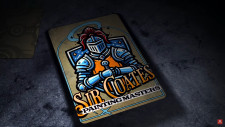
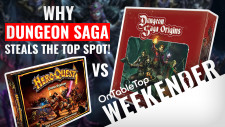



![TerrainFest 2024! Build Terrain With OnTableTop & Win A £300 Prize [Extended!]](https://images.beastsofwar.com/2024/10/TerrainFEST-2024-Social-Media-Post-Square-225-127.jpg)






